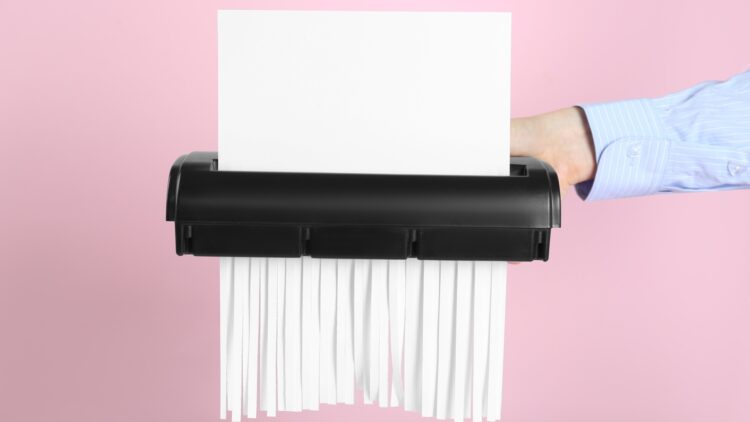While we are all focused on protecting our online lives and enhancing our cybersecurity, we can sometimes forget that old school is still as effective as it always was and that just because it takes a bit more effort to steal your identity the traditional way it does not mean that it will not be done. The best way to avoid your identity being stolen based on paper mediums is to wither not have any or make sure to destroy any documents that contains personal information.
If you can remember the time when we all owned a shredder you might be a bit older, but it was a household staple for a reason and we all need to remember that. Despite most communications by official sources being online (and since President Trump signed an executive order banning federal payments to be issued via paper check this is even more relevant) there are still a shocking number of processes that will still require physical paperwork or mail.
Even non important things like junk mail can contain a shocking amount of information about a person, and if we toss those letters in the bin without shredding them we are giving everyone a chance to just waltz in an steal our money.
The most important documents to shred and why
Well, of course the most important documents are the ones that will contain the most information about you. Most of us do not just toss away Internal Revenue Service documents, as those may be relevant later, but we might not think twice about tossing a bank statement that will have the exact same information and sometimes even more, like a bank account number or a security code.
This is why some criminals still bother going through the trash to try to find those papers, because even though it may be labor intensive, the payoff can be huge if they can clean out your accounts, take debts and loans in your name and sign up for credit cards.
Another type of document that you might want to think about shredding is anything that contains information like your phone number or your signature, as those can be used to create fake profiles or bank accounts and steal your whole identity and not just your money. Phone numbers can also be used to run a telephone scam on you, so beware of any strange calls and never give out any information over the phone.
Remember that any company that is contacting you directly will already have your information, and you will not have to verify it in order to hear about their offers. If you wish to be sure about anything that is said over the phone, customer service lines for your service companies are always public record and available in any of your statements, on paper or online, so you can contact them directly if you wish to switch services, ensuring that you are speaking to a true representative.
To protect yourself further, just remember to shred, compost or burn (thoroughly destroy) any correspondence that has any personal information bout you, even if it is just name and address. And yes, we are aware that it is inconvenient and time consuming, but fraud is the hardest crime to prosecute and the one that can have the most long lasting impact on your life, so finding a way to do it easily will ensure that you actually take the precautions.
Additionally, go back to 90’s rules, do not tell your personal information or schedule to anyone, do not post on Social Media about vacations, employment or birthdays, that way it will be harder to collect any information on you and steal your identity.

